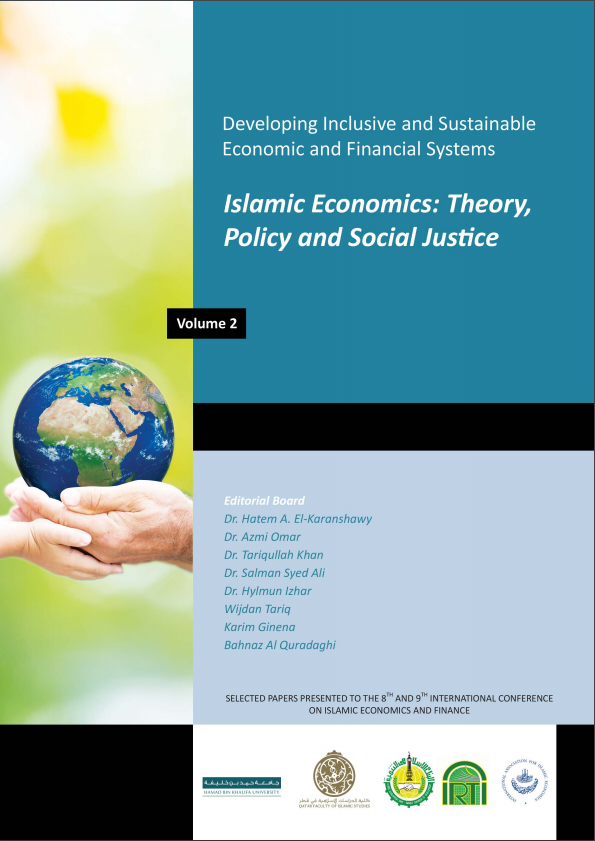The need for developing inclusive and sustainable Islamic economic and financial systems become very important. The early opinion building as well as the later technical literature on the subject of Islamic economics has greatly contributed to the promotion of this line of inquiry. However, Islamic economics has not yet achieved a level to become a discipline that is able to create a paradigm shift in the way of thinking and policymaking. The need is therefore not only to develop the theory but also to link the theory with policymaking. This transition would also require yardsticks and measuring devices to gauge the social, economic, and financial progress defined in congruence with Islam. With this perspective, the present volume focuses on: (i) further articulation of the fundamental concepts and methods of Islamic economics, (ii) analysis of the workings of fiscal and monetary policies in Islamic context, and (iii) measurement and analysis of socio-economic development. The fifteen papers collected in this volume attempt to cover the three aspects mentioned above. These papers are selected from the 8th International Conference on Islamic Economics and Finance held in Doha during 19-21 December 2011 and from the 9th International Conference on Islamic Economics and Finance held in Istanbul during 9-11 September 2013.
PART 1: ISLAMIC ECONOMICS AS A DISCIPLINE
Crisis in Islamic economics: Diagnosis and prescriptions / Asad Zaman
First vs. second generation Islamic economists: Deviations and differences in thoughts / Abdul Azim Islahi
Methodology of Islamic economics: Typology of current practices, evaluation and way forward / Hafas Furqani and Mohamed Aslam Haneef
Islamic economics: Still in search of an identity / Abdulkader Cassim Mahomedy
Islamic economics as a new economic paradigm / Necati Aydin
The effect of scarcity thinking on human wants among Muslims: Exploring the ideological orientation of the concept of scarcity / Amir Wahbalbari, Zakaria Bahari, and Norzarina Mohd-Zaharim
PART 2: FISCAL AND MONETARY POLICIES – AN ISLAMIC PERSPECTIVE
The transmission of monetary policy through conventional and Islamic banks / Sajjad Zaheer, Steven Ongena, and Sweder J.G. van Wijnbergen
The importance of the Islamic banks in the monetary transmission mechanism in Malaysia / Zamrah Hasin and M. Shabri Abd. Majid
Economic sectors sensitivity to Islamic and conventional monetary Instrument: Case study in Indonesia / Raditya Sukmana
Public sector funding and debt management: A case for GDP-linked sukuk / Abdou Diaw, Obiyathulla Ismath Bacha, and Ahcene Lahsasna
Economic and financial crises in Fifteenth-century Egypt: Lessons from the history / Abdul Azim Islahi
PART 3: ECONOMIC DEVELOPMENT, SOCIAL JUSTICE AND SUSTAINABILITY
Post-crisis economic recovery in OIC member states: Is it sustainable? / Zafar Iqbal
The Integrated Development Index (I-Dex): A new comprehensive approach to measuring human development / Ruzita Mohd Amin, et al.
Islamic finance and economic growth: The Malaysian case / Néjib Hachicha and Amine Ben Amar
Distributional and poverty consequences of globalization: Are OIC countries different? / Muhammad Tariq Majeed

